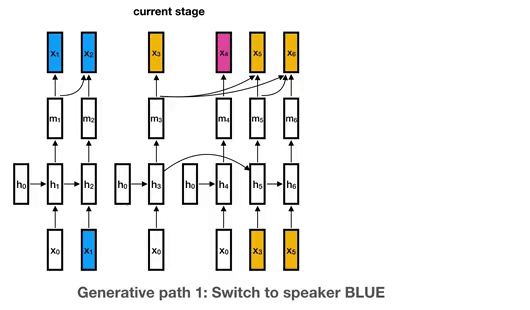minnn
by Graham Neubig, Zhisong Zhang, and Divyansh Kaushik
This is an exercise in developing a minimalist neural network toolkit for NLP, part of Carnegie Mellon University's CS11-747: Neural Networks for NLP.
The most important files it contains are the following:
- minnn.py: This is what you'll need to implement. It implements a very minimalist version of a dynamic neural network toolkit (like PyTorch or Dynet). Some code is provided, but important functionality is not included.
- classifier.py: training code for a Deep Averaging Network for text classification using minnn. You can feel free to make any modifications to make it a better model, but the original version of
classifier.pymust also run with yourminnn.pyimplementation. - setup.py: this is blank, but if your classifier implementation needs to do some sort of data downloading (e.g. of pre-trained word embeddings) you can implement this here. It will be run before running your implementation of classifier.py.
- data/: Two datasets, one from the Stanford Sentiment Treebank with tree info removed and another from IMDb reviews.
Assignment Details
Important Notes:
- There is a detailed description of the code structure in structure.md, including a description of which parts you will need to implement.
- The only allowed external library is
numpyorcupy, no other external libraries are allowed. - We will run your code with the following commands, so make sure that whatever your best results are are reproducible using these commands (where you replace
ANDREWIDwith your andrew ID):mkdir -p ANDREWIDpython classifier.py --train=data/sst-train.txt --dev=data/sst-dev.txt --test=data/sst-test.txt --dev_out=ANDREWID/sst-dev-output.txt --test_out=ANDREWID/sst-test-output.txtpython classifier.py --train=data/cfimdb-train.txt --dev=data/cfimdb-dev.txt --test=data/cfimdb-test.txt --dev_out=ANDREWID/cfimdb-dev-output.txt --test_out=ANDREWID/cfimdb-test-output.txt
- Reference accuracies: with our implementation and the default hyper-parameters, the mean(std) of accuracies with 10 different random seeds on sst is dev=0.4045(0.0070), test=0.4069(0.0105), and on cfimdb dev=0.8792(0.0084). If you implement things exactly in our way and use the default random seed and use the same environment (python 3.8 + numpy 1.18 or 1.19), you may get the accuracies of dev=0.4114, test=0.4253, and on cfimdb dev=0.8857.
The submission file should be a zip file with the following structure (assuming the andrew id is ANDREWID):
- ANDREWID/
- ANDREWID/minnn.py
# completed minnn.py - ANDREWID/classifier.py.py
# completed classifier.py with any of your modifications - ANDREWID/sst-dev-output.txt
# output of the dev set for SST data - ANDREWID/sst-test-output.txt
# output of the test set for SST data - ANDREWID/cfimdb-dev-output.txt
# output of the dev set for CFIMDB data - ANDREWID/cfimdb-test-output.txt
# output of the test set for CFIMDB data - ANDREWID/report.pdf
# (optional), report. here you can describe anything particularly new or interesting that you did
Grading information:
- A+: Submissions that implement something new and achieve particularly large accuracy improvements (e.g. 2% over the baseline on SST)
- A: You additionally implement something else on top of the missing pieces, some examples include:
- Implementing another optimizer such as Adam
- Incorporating pre-trained word embeddings, such as those from fasttext
- Changing the model architecture significantly
- A-: You implement all the missing pieces and the original
classifier.pycode achieves comparable accuracy to our reference implementation (about 41% on SST) - B+: All missing pieces are implemented, but accuracy is not comparable to the reference.
- B or below: Some parts of the missing pieces are not implemented.
References
Stanford Sentiment Treebank: https://www.aclweb.org/anthology/D13-1170.pdf
IMDb Reviews: https://openreview.net/pdf?id=Sklgs0NFvr




